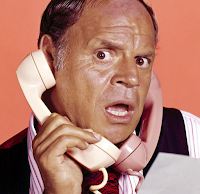** Mariko Tamaki and Rosemary Valero-O'Connell announce 'Laura Dean Keeps Breaking Up With Me' (Los Angeles Times)-- While it's still a couple of years away, The LA Times breaks the news on Mariko Tamaki and Rosemary Valero-O'Connell's new book in 2018 from First Seconds.
Valero-O’Connell: The stories we take in can be so important to the way we conceptualize ourselves and what's possible for us, and I think this is especially the case with younger readers whose sense of self is still so nebulous and turbulent.** The Return of the Black Panther (The Atlantic)-- We don't usually cover Marvel or DC books here but Ta-Nehesi Coates new Black Panther comic from Marvel is a fascinating book on many levels. As a very prominent cultural writer and thinker, Coates brings a unique point of view into comics but it's also very interesting to see how he's also reacting to comics as he's writing a currently high-profile character.
Moving beyond the single/limited narratives that are available for queer youth to see themselves in, and into further reaching uncharted territory that addresses the fact that there will be more to their lives than coming out normalizes those lives and also adds another dimension to the sadly still very flat world queer characters seem to be allowed to inhabit in mainstream media.
Despite the difference in style and practice of storytelling, my approach to comic books ultimately differs little from my approach to journalism. In both forms, I am trying to answer a question. In my work for The Atlantic I have, for some time, been asking a particular question: Can a society part with, and triumph over, the very plunder that made it possible? In Black Panther there is a simpler question: Can a good man be a king, and would an advanced society tolerate a monarch? Research is crucial in both cases. The Black Panther I offer pulls from the archives of Marvel and the character’s own long history. But it also pulls from the very real history of society—from the pre-colonial era of Africa, the peasant rebellions that wracked Europe toward the end of the Middle Ages, the American Civil War, the Arab Spring, and the rise of isis.In a second piece at The Atlantic, Coates even talks about some of the critical writing that Black Panther #1 is inspiring.
The feminist critique is in the air now. If my rendition of Black Panther wasn’t created by that critique, it breathed the same air. I can’t really kill off or depower women characters without grappling with Gail Simone. I can’t really think about how women characters are drawn anymore without thinking about the women inBitch Planet, and how they seem drawn beyond the male gaze.
This is why criticism is important. The job of criticism isn’t to interrupt or encourage commercial prospects. (“Batman vs Superman smashes Box Office, despite critic complaints!”) Criticism should push our imagination and help us understand what is actually possible in art and, I’d argue, even what is moral. Through much of my time collecting comic books I never took much issue with how women were drawn. I had a vague sense that there was something about, say, the reworking of Psylocke that bugged me. But I simply didn’t give it much thought. It never occurred to me, for instance, to ask whether a superhero’s pose was anatomically possible. It never occurred to me to ask why a super-hero would have a DD cup-size. Was that for her benefit or for mine? I never asked.
** In Hiromi Goto's first graphic novel 'Shadow Life,' it's one tough old woman against death (Los Angeles Times)-- The LA Times breaks the news about another 2018 First Second release, Shadow Life by Hiromi Goto and Celine Loup.
"Kumiko is the kind of person few people write stories about — elderly, chubby, queer and Asian — and as such I'm immediately drawn to her as a character," says Loup. She hopes the book will appeal to "both longtime readers of comics and people who have never picked up a comic book but long to see someone a little more like themselves leading the stories they read."
** CULLEN BUNN & BRIAN HURTT DISCUSS THE SIXTH GUN (Graphic Policy)-- As The Sixth Gun begins its final three issues, Cullen Bunn and Brian Hurtt talk to Graphic Policy about the series and its upcoming conclusion.
Brian Hurtt: My whole mission statement, as it were, from the get-go was to not make a standard western. That is, I wanted to avoid all those earth tones or sepia colored scenes. I wanted to embrace a rich color scheme and bring more of a “pop” aesthetic to the book. If anything, I’m drawing on the four-color superhero books of my youth. From colorful characters with very specific, singular, designs and color schemes to big sound effects on the page. As much as I love westerns, I was doing everything I can to set it apart from certain expectations. I’m drawing more from cartoons, comics, fantasy films and so on.










